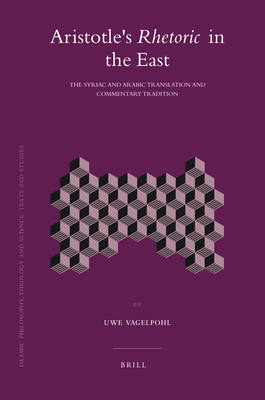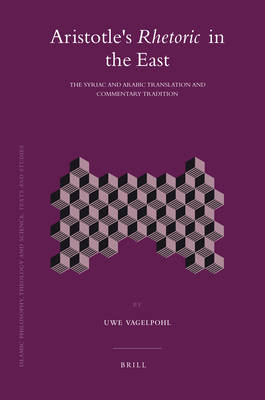
- Afhalen na 1 uur in een winkel met voorraad
- Gratis thuislevering in België vanaf € 30
- Ruim aanbod met 7 miljoen producten
- Afhalen na 1 uur in een winkel met voorraad
- Gratis thuislevering in België vanaf € 30
- Ruim aanbod met 7 miljoen producten
Zoeken
Aristotle's Rhetoric in the East
The Syriac and Arabic Translation and Commentary Tradition
Uwe Vagelpohl
€ 236,95
+ 473 punten
Omschrijving
The two centuries following the rise of the Abbasid caliphate in 750 witnessed a wave of translations from Greek into Syriac and Arabic. The translation and reception of Aristotle's Rhetoric is a prime example for the resulting transformation of antique learning in the Islamic world and beyond. On the basis of a close textual analysis of the Rhetoric, this study develops elements of a comparative "translation grammar" of Greek-Arabic translations. Contextualizing the analysis with an account of the textual history and the Syriac and Arabic philosophical tradition drawing on theRhetoric, it throws new light on the inner workings of the "translation movement" and its impact on Islamic culture.
Specificaties
Betrokkenen
- Auteur(s):
- Uitgeverij:
Inhoud
- Aantal bladzijden:
- 347
- Taal:
- Engels
- Reeks:
- Reeksnummer:
- nr. 76
Eigenschappen
- Productcode (EAN):
- 9789004166813
- Verschijningsdatum:
- 31/08/2008
- Uitvoering:
- Hardcover
- Formaat:
- Genaaid
- Afmetingen:
- 165 mm x 244 mm
- Gewicht:
- 725 g

Alleen bij Standaard Boekhandel
+ 473 punten op je klantenkaart van Standaard Boekhandel
Beoordelingen
We publiceren alleen reviews die voldoen aan de voorwaarden voor reviews. Bekijk onze voorwaarden voor reviews.








